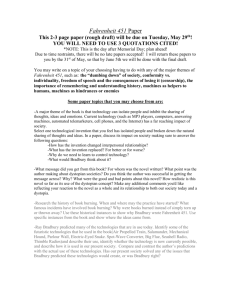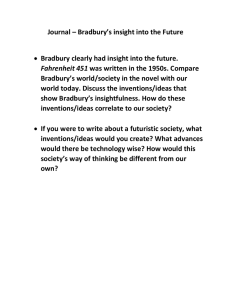In what ways does Ray Bradbury use the dystopian genre to convey his message in Fahrenheit 451
advertisement
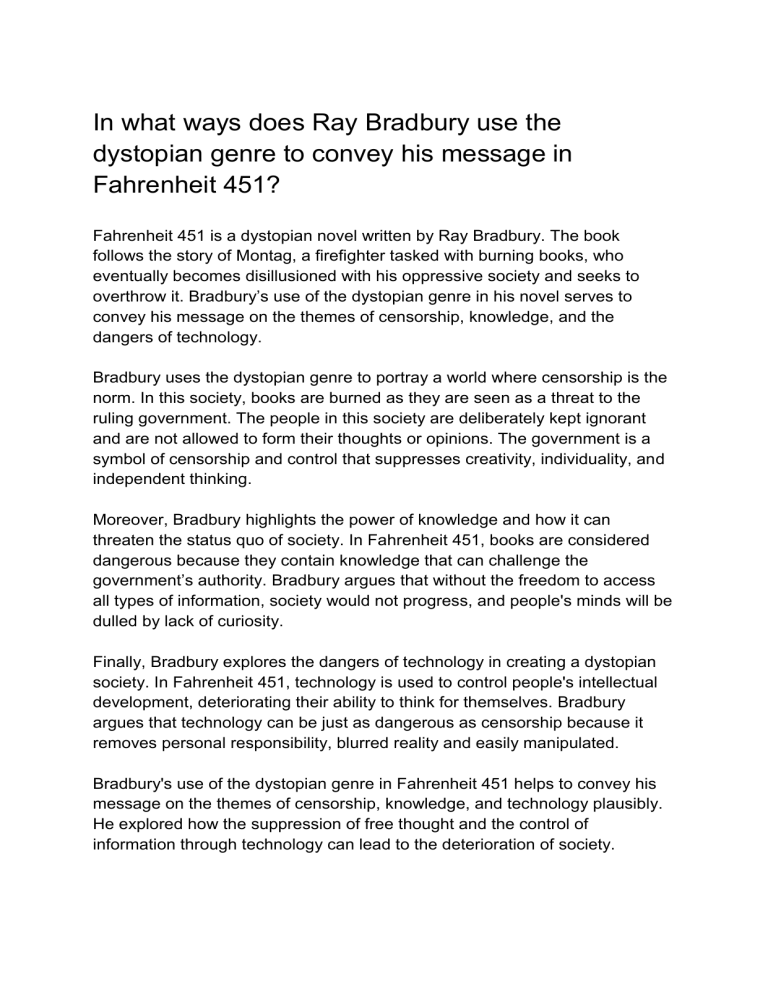
In what ways does Ray Bradbury use the dystopian genre to convey his message in Fahrenheit 451? Fahrenheit 451 is a dystopian novel written by Ray Bradbury. The book follows the story of Montag, a firefighter tasked with burning books, who eventually becomes disillusioned with his oppressive society and seeks to overthrow it. Bradbury’s use of the dystopian genre in his novel serves to convey his message on the themes of censorship, knowledge, and the dangers of technology. Bradbury uses the dystopian genre to portray a world where censorship is the norm. In this society, books are burned as they are seen as a threat to the ruling government. The people in this society are deliberately kept ignorant and are not allowed to form their thoughts or opinions. The government is a symbol of censorship and control that suppresses creativity, individuality, and independent thinking. Moreover, Bradbury highlights the power of knowledge and how it can threaten the status quo of society. In Fahrenheit 451, books are considered dangerous because they contain knowledge that can challenge the government’s authority. Bradbury argues that without the freedom to access all types of information, society would not progress, and people's minds will be dulled by lack of curiosity. Finally, Bradbury explores the dangers of technology in creating a dystopian society. In Fahrenheit 451, technology is used to control people's intellectual development, deteriorating their ability to think for themselves. Bradbury argues that technology can be just as dangerous as censorship because it removes personal responsibility, blurred reality and easily manipulated. Bradbury's use of the dystopian genre in Fahrenheit 451 helps to convey his message on the themes of censorship, knowledge, and technology plausibly. He explored how the suppression of free thought and the control of information through technology can lead to the deterioration of society. Reference: Bradbury, R. (1996). Fahrenheit 451. Random House.
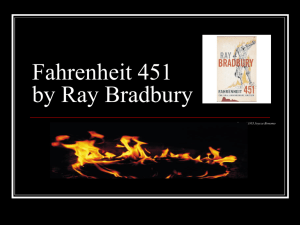
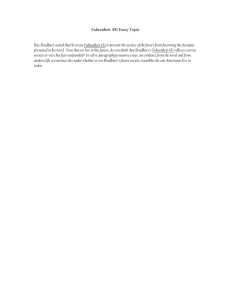
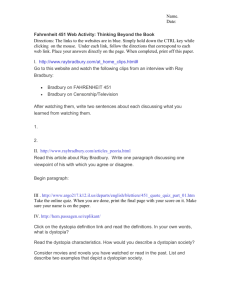

![Intro F451[1]](http://s2.studylib.net/store/data/009924096_1-1c4904c3c0fa500a3f2e707a97ad8dda-300x300.png)
